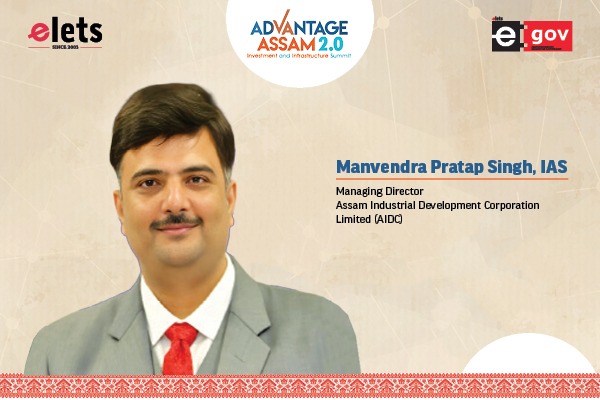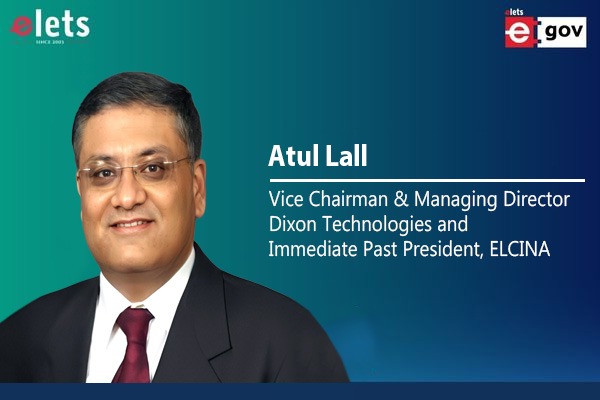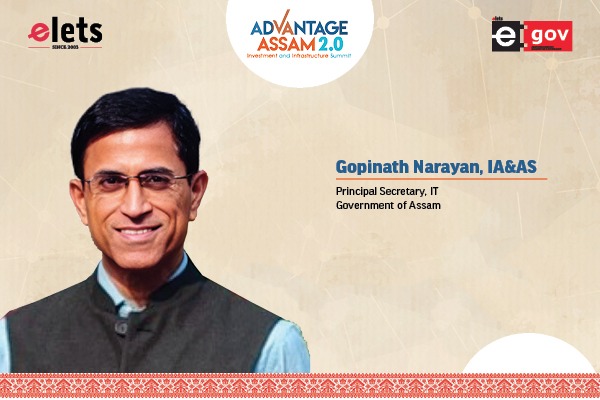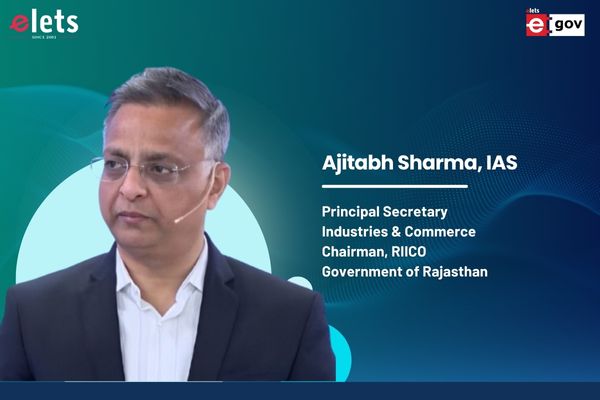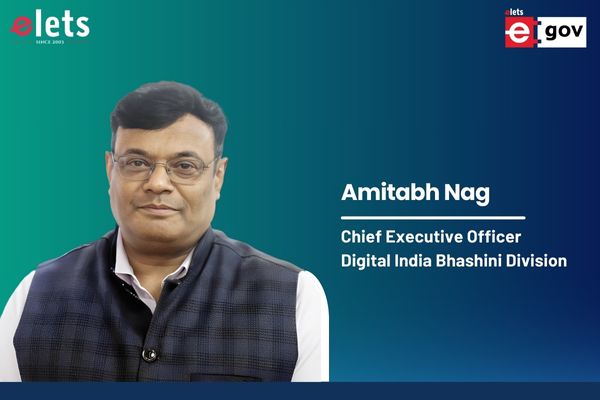
The Jalanidhi Project, led by the Kerala Rural Water Supply and Sanitation Agency (KRWSA), has transformed rural water management through its decentralised, community-driven approach. With over 5,800 schemes implemented, Jalanidhi integrates participatory planning, cost-sharing models, and innovative governance, shared Dr. Binu Francis, Joint Managing Director/Executive Director, Jalanidhi, Kerala Water Authority in an exclusive interview with Nisha Samant of Elets News Network (ENN).
Jalanidhi emphasizes a decentralized, demand-responsive approach involving beneficiary groups in planning and implementation. Could you elaborate on the strategies employed to ensure effective community participation and ownership in rural water supply schemes?

The Jalanidhi Project, implemented by the Kerala Rural Water Supply and Sanitation Agency (KRWSA), adopts a decentralized, demand-responsive approach that actively involves beneficiary groups in planning, implementing, and managing rural water supply schemes. This strategy emphasizes community participation and ownership to ensure the success and sustainability of the initiatives. Key highlights include:

- Needs Identification: Projects align with local priorities by addressing beneficiaries’ specific water supply needs.
- Stakeholder Awareness: Extensive information, education, and capacity-building programs prepare communities for active involvement.
- Beneficiary Groups (BGs): Formed and registered under the Societies Registration Act of 1955, BGs manage projects with guidance from local leaders and NGOs.
- Women’s Role: Women are prioritized in decision-making processes for operational and management roles.
- Cost Sharing: Beneficiaries contribute to capital and O&M expenses (15% in Phase I, 10% in Phase II) to foster ownership.
- Participation: Communities are involved in planning, implementation, and post-project activities, including material selection and resource mobilization.
- Transparency & Accountability: Financial contributions flow through BG accounts, and operations remain transparent.
- Collaboration: Partnerships with local self-governments ensure joint ownership and effective management.
- Conflict Resolution: Regular engagement builds trust and addresses concerns promptly.
- Skill Development: Training enhances decision-making.
Jalanidhi’s inclusive and sustainable approach ensures technically sound, socially inclusive, and economically viable rural water supply systems, fostering long-term community resilience and success.

With 5,884 rural water supply schemes constructed and operated by communities, what governance frameworks are in place to ensure the long-term sustainability and functionality of these schemes?

The Kerala Rural Water Supply and Sanitation Agency (KRWSA) was established by the Government of Kerala (GOK) to ensure safe drinking water and sanitation in rural areas sustainably. KRWSA implemented Jalanidhi Phase I and Phase II (2000–2020), adopting a demand-driven, communitymanaged approach. Beneficiary groups (BGs) were formed to design, implement, and maintain schemes. Phase I saw 3,710 schemes across 112 Gram Panchayats, while Phase II implemented 2,174 schemes in 115 Panchayats.
Capacity Building and GP Involvement
Training programs for BGs covered community mobilization, planning, water quality management, and O&M practices. Gram Panchayats (GPs), key players in Kerala’s water supply sector, were formally integrated into project oversight in Phase II. They ensure technical assistance, monitor service delivery, and resolve inter-BG issues.
BG Federation
The BG Federation, at the Panchayat level, oversees beneficiary groups, ensures resource mobilization, handles emergencies, advises on water conservation, and resolves conflicts. It manages financial planning, appoints experts, and raises funds for sustainability.
Water Security Plans
Phase II introduced water security plans, enabling GPs to make informed decisions on water source sustainability and groundwater recharge, especially during dry months.
Restoration of Defunct Schemes
Since 2019, 1,786 partially/fully defunct schemes from Jalanidhi Phases I & II are being restored under the “Sustainability Support to Community Managed Water Supply Schemes.” To date, 1,335 have been restored, with 321 ongoing and 130 approved for 2024-25.
KRWSA’s Backstopping Support
KRWSA provides technical and advisory support to community-managed schemes, ensuring their long-term success and preventing project failures. The agency is repositioned to strengthen this role under the sustainability initiative.
Jalanidhi Phase I and II have significantly increased access to water supply in rural areas. Could you highlight key infrastructure achievements from these phases and any lessons learned that are influencing current projects?
The Government of Kerala was a signatory to the Cochin Declaration, which introduced reforms in the rural water supply sector. Following this, the Kerala Rural Water Supply and Sanitation Agency (KRWSA) was established on November 17, 1999, as a special-purpose vehicle to implement the World Bank-supported Jalanidhi project. This community-managed, demand-driven water supply and sanitation initiative has completed two successful phases: Phase-1 (2000–2008) and Phase-2 (2012–2019), covering 5,884 schemes across 227 Gram Panchayats (GPs), benefiting 4.52 lakh households.
KRWSA’s achievements include the construction of over 40,000 rainwater harvesting structures, 1.04 lakh individual latrines, and 96,703 environment management units. Postcommissioning, these assets were handed over to beneficiary groups for independent operation and maintenance. KRWSA has also been pivotal in promoting rainwater harvesting and implementing the Jal Jeevan Mission, adopting principles and methods aligned with Jalanidhi.
KRWSA has set a benchmark for decentralized, inclusive, and community-driven water supply management, transforming rural development and influencing state and national programs like the Jal Jeevan Mission.
The Scaling up of the Rain Water Harvesting and Ground Water Recharge Programme has a financial outlay of Rs.1000 lakhs, with 22.90% expenditure reported. What are the current challenges and expected outcomes of this initiative?
The Rain Centre, established in 2004 as part of KRWSA, promotes Rain Water Harvesting (RWH) and Ground Water Recharge (GWR) in response to severe droughts. Recognizing the importance of water conservation, the State included RWH and GWR programs in Five-Year Plans with dedicated budget allocations.
Key Issues in FY 2024-25
- Reduced plan outlay to ₹702.96 lakh as per government orders.
- Delays in fund release and administrative approvals impacted progress.
The program continues to address water scarcity while adapting to challenges and financial constraints.
The Kerala Water Authority has launched several e-governance services, including a customer-friendly consumer portal. How is Jalanidhi integrating such technological advancements to enhance service delivery and operational efficiency?
As per Jalanidhi Project guidelines, after the commissioning of the scheme, all assets related to the scheme will be handed over to Beneficiary Group (BG) & Gram Panchayath (GP) for operation and maintenance. Beneficiary Group has to manage the operation and maintenance of schemes during the post-commissioning period by themselves. As KRWSA has no direct involvement in the management of schemes during the postcommissioning period, KRWSA has not initiated/ implemented any IT-based solutions for consumers after the project exits from the Gram panchayaths. However several individual scheme management committee have developed their own automated online billing system for their scheme management.
However, KRWSA had implemented several consumer-friendly IT-based solutions as part of its e-governance programme during the implementation period of the Jalanidhi project which is listed below,
- Internet-based online MIS system named JIMS & Online Financial module (FMIS) had been used for field-level data collection and monitoring of the Physical and Financial progress of the Jalanidhi Phase-II project activities. Project implementation status is made available to all project stakeholders and the public. KRWSA MIS system has been used by the community for social audit. JalanidhiPhase-2 project MIS has received several recognition/awards from the World Bank / GoI / GoK.
- All KRWSA activities are being uploaded to the website under the URL: jalanidhi.kerala.gov.in regularly. (Details of completed projects, ongoing projects, success stories, latest news, grievance redressal system, tender details, GIS/MIS platform, GOs/Guidelines, Project Photos etc are now available on the website)
- E-office system “Sujalam” has been implemented in all KRWSA offices. The e-Office system is an integrated file and records management system that allows employees to manage content, search for data internally and collaborate. The file system also enables the electronic movement and the tracking of files, archival and retrieval of data.
- The Grievance Redressal mechanism is functional at KRWSA with the toll-free number 1800-425-5031. Besides web web-based complaint registration and tracking system attached to the Jalanidhi website is also operational.(www.jalanidhi.kerala.gov.in)
- A Document Management System (DMS) has been implemented in KRWSA for organizing, securing, capturing, digitizing, tagging, approving, and completing tasks of Documents in the office.
- Video conferencing facility arranged in PMU as well as all RPMUs.
- Initiated a “mobile app “ based functionality survey of all community-managed schemes in a GP and survey data with geo-referred asset pictures and are published on the Jalanidhi website for public use.
Also Read: Bridging the Urban-Rural Divide with Innovation
Constraints in Developing New IT Solutions
- Lack of IT Team or Experts: Similar to the Kerala Water Authority (KWA) IT cell, KRWSA does not have an inhouse IT team or IT experts at the headquarters to develop new software or manage IT-based solutions.
- Financial Constraints: There are financial limitations when it comes to outsourcing IT development to private agencies
Be a part of Elets Collaborative Initiatives. Join Us for Upcoming Events and explore business opportunities. Like us on Facebook , connect with us on LinkedIn and follow us on Twitter, Instagram.
"Exciting news! Elets technomedia is now on WhatsApp Channels Subscribe today by clicking the link and stay updated with the latest insights!" Click here!




